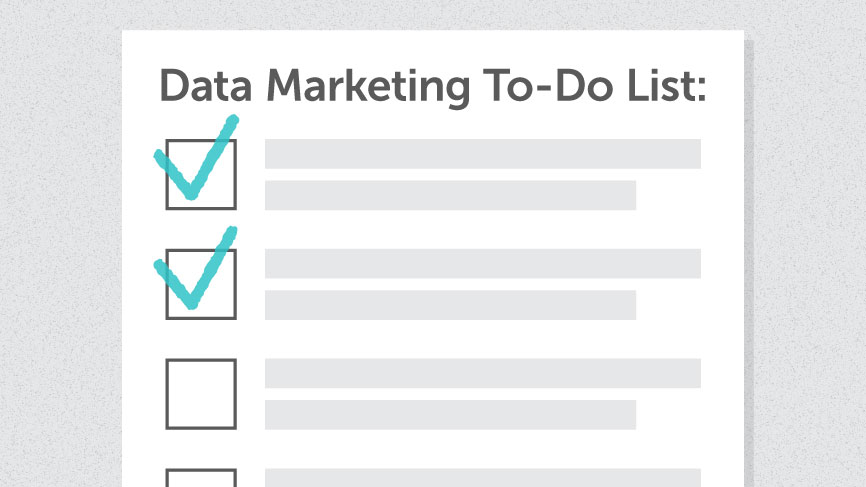Pledge to enact five data marketing solutions that ensure your data practices can be consistent, repeatable and beneficial to the entire organization.
What marketing solutions have you created to strengthen data diligence? The new year is in full swing, providing a host of new opportunities, challenges and disruptions regarding big data. At the same time, the same habits, routines and choices that caused you problems in the past have resurfaced. Thus, for all the optimism you expect this year, you must reconcile your past to seize opportunities.
Pledging to be more attentive to your organization’s data needs provides perhaps the greatest example of how you can be effective in 2017. You can start by holding your organization accountable to the following five marketing solutions for data diligence:
Define What Data Quality Success Is
The first step to your plan is to give descriptors to your ideal performance goals regarding data analytics. Without this objective benchmark, it will be difficult to revise or improve your practices over time. Also, users make assumptions or bring different mental baggage to the table when discussing analytics-backed projects.
By putting goals in writing, not only is everyone on the same page, but you gain guidelines to establish best practices and high-success benchmarks into the future.
Document Your Data Analytics Program in Detail
Describing your analytics and data usage practices in general is fruitless if you cannot evaluate whether those goals are being adhered to. Remedying this means diligently logging data capture and manipulation activities through an automated system while also documenting each individual practice in detail.
In the process of adding detail, you will begin to outline standard practices and procedures, making scheduling and assigning tasks easier on a granular level. Furthermore, each department should step back periodically to evaluate if current practices and performance line up with the overall goals.
Take Control Over Data Capture Across the Organization
Standard procedures and recommended best practices are a must across the whole organization for any company that wants to prepare for the insight-driven future. These practices should be reflected in how your computing systems handle data on a daily basis. You will need to chart the flow of data in order to decide how data should be tagged with meta-descriptors or given hierarchies as it comes in.
You should also account for practices such as which storage tiering and data management applications you should use in order to ensure all automated activities benefit your goals.
Integrate Analytics into Every Customer Touchpoint
If you let data remain in silos or get archived never to be seen again, you are missing a critical portion of your perspective. Make sure all customer relationship management and point of sale can co-mingle with data captured from customer marketing touchpoints such as online engagement.
Staff According to Current and Future Data Needs
Part of establishing standard procedures and ensuring accountability means putting one person or department in charge of data management and organization. For this reason, many companies are hiring a chief data officer, who can mitigate competing stakeholders and determine an optimal solution for all.
Data quality monitoring and maintenance should also be scheduled regularly as a standard practice, necessitating ongoing staff involvement.
By defining your goals, documenting data structure, prioritizing data, enhancing customer relations and hiring a CDO, you will be ready for a rapidly approaching future in which data-backed marketing insights are not just a competitive advantage but a necessity for survival.

